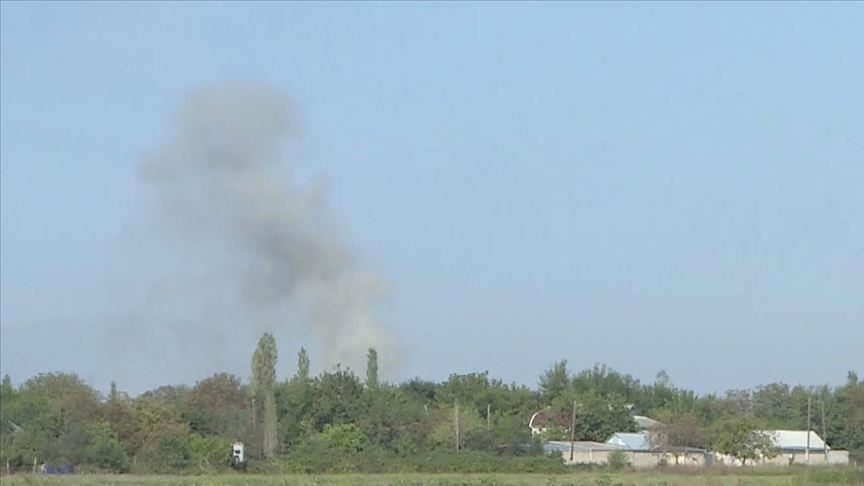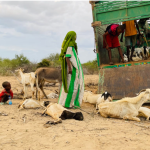The Azerbaijani army liberated some critical points in the western Agdere province from Armenian occupation as border clashes entered their sixth day, the country’s Defense Ministry said on Friday.
The ministry said in a statement that the Azerbaijani army forced the Armenian army to withdraw from the Jabrayil-Fizuli region, adding that some strategic hills in Agdere’s Madagiz region were also liberated from occupation.
During a night clashes, five Armenian armored vehicles were destroyed and a large number of soldiers neutralized, it said.
The ministry said volunteers brought from Armenia to the occupied areas refused to fight, fearing the intensity of the conflict and heavy losses.
The success in clashes and the liberation of various strategic positions boosted the fighting spirit and determination of the Azerbaijani soldiers, it underlined.
Another ministry statement said Armenian forces targeted the villages of Hindiristan, Alibeyli, Ahmadaghali and Safarli in the southwestern Agdam province.
Heavy Armenian attacks resulted in civilian deaths and injuries, it added.
Underscoring that Armenia carried out rocket attacks on Azerbaijani territories from the Gorus region, it said Azerbaijan will make the necessary retaliatory response.
Border clashes first broke out last Sunday when Armenian forces targeted Azerbaijani civilian settlements and military positions, leading to casualties.
Azerbaijan’s parliament declared a state of war in some of its cities and regions following Armenia’s border violations and attacks in occupied Upper Karabakh, also known as Nagorno-Karabakh.
On Monday, Azerbaijan declared partial military mobilization amid the clashes.
History of Upper Karabakh conflict
Relations between the two former Soviet nations have been tense since 1991, when the Armenian military occupied Upper Karabakh, an internationally recognized territory of Azerbaijan.
Four UN Security Council and two UN General Assembly resolutions, as well as many international organizations, demand the withdrawal of the occupying forces.
The OSCE Minsk Group – co-chaired by France, Russia and the US – was formed in 1992 to find a peaceful solution to the conflict, but to no avail. A cease-fire, however, was agreed upon in 1994.
France, Russia and NATO, among others, have urged an immediate halt to clashes in the occupied region.





